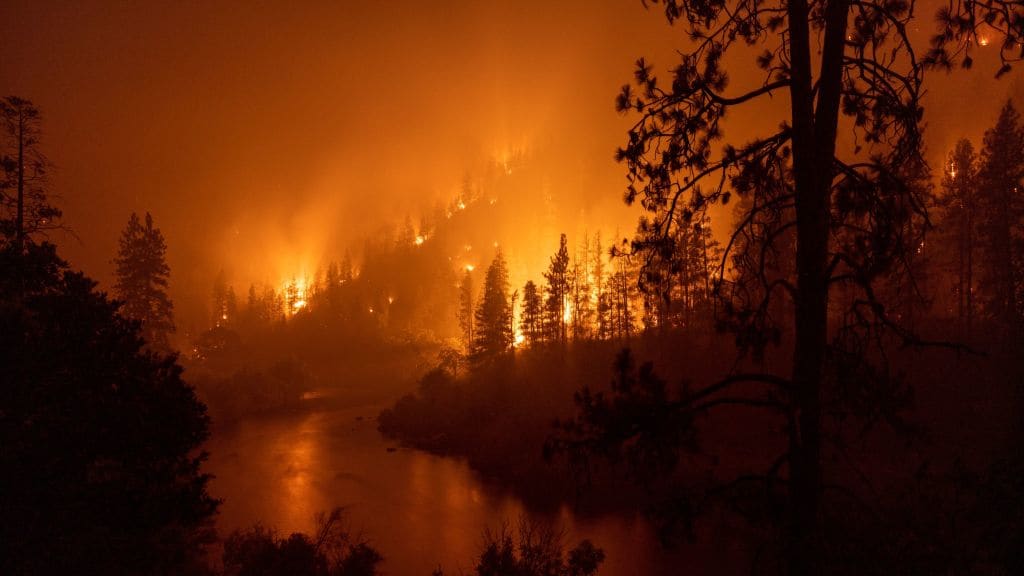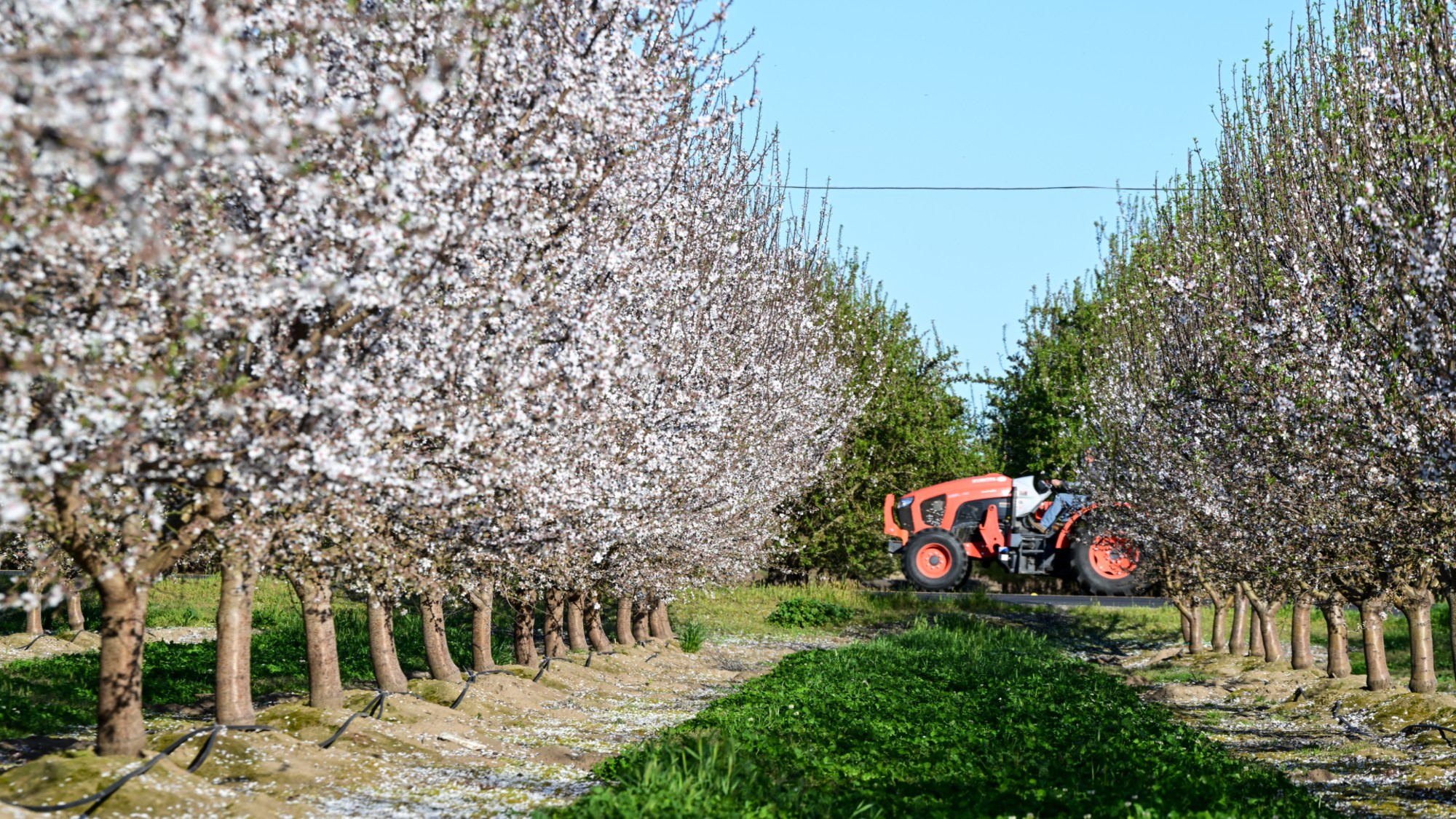California's powerful McKinney fire is causing the 'fire-breathing dragon of clouds'


A free daily email with the biggest news stories of the day – and the best features from TheWeek.com
You are now subscribed
Your newsletter sign-up was successful
The intense McKinney fire in Northern California is producing its own weather, generating four thunder and lightning storms just in its first 24 hours.
The fire broke out in the Klamath National Forest on Friday, and since then it has burned more than 55,000 acres. It is fueled by parched vegetation, high temperatures, and dry conditions, and the fire is burning so hot that its smoke has penetrated the stratosphere multiple times, and formed a pyrocumulonimbus cloud — dubbed by NASA as the "fire-breathing dragon of clouds."
The rain, wind, thunder, and lightning make this a "classic example of a wildfire producing its own weather," U.S. Naval Research Laboratory meteorologist David Peterson told the Los Angeles Times.
The Week
Escape your echo chamber. Get the facts behind the news, plus analysis from multiple perspectives.

Sign up for The Week's Free Newsletters
From our morning news briefing to a weekly Good News Newsletter, get the best of The Week delivered directly to your inbox.
From our morning news briefing to a weekly Good News Newsletter, get the best of The Week delivered directly to your inbox.
Mike Flannigan, a fire scientist at Canada's Thompson Rivers University, explained to the Times that data has been showing for years that fires are becoming more powerful, but "what we're seeing in the Western United States and in British Columbia in the last few years, I would not have expected to see until 2040. The signal is clear: This is due to human-caused climate change. It can't be any clearer than that. It's happening more rapidly than I would have expected. This is my field, and this is surprising how rapidly things are changing."
It used to be rare for a fire to trigger a pyrocumulonimbus cloud, but data shows the smoke plumes are getting taller and are also more densely packed with tiny particles of soot and ash. This pollution is linked to cardiovascular problems, asthma, and premature death. "The more we know about smoke, the more we know it's bad for us," Flannigan told the Times. Read more about pyrocumulonimbus clouds, and what scientists are still trying to figure out about them, at the Los Angeles Times.
A free daily email with the biggest news stories of the day – and the best features from TheWeek.com
Catherine Garcia has worked as a senior writer at The Week since 2014. Her writing and reporting have appeared in Entertainment Weekly, The New York Times, Wirecutter, NBC News and "The Book of Jezebel," among others. She's a graduate of the University of Redlands and the Columbia University Graduate School of Journalism.
-
 The ‘ravenous’ demand for Cornish minerals
The ‘ravenous’ demand for Cornish mineralsUnder the Radar Growing need for critical minerals to power tech has intensified ‘appetite’ for lithium, which could be a ‘huge boon’ for local economy
-
 Why are election experts taking Trump’s midterm threats seriously?
Why are election experts taking Trump’s midterm threats seriously?IN THE SPOTLIGHT As the president muses about polling place deployments and a centralized electoral system aimed at one-party control, lawmakers are taking this administration at its word
-
 ‘Restaurateurs have become millionaires’
‘Restaurateurs have become millionaires’Instant Opinion Opinion, comment and editorials of the day
-
 Blue Origin launches Mars probes in NASA debut
Blue Origin launches Mars probes in NASA debutSpeed Read The New Glenn rocket is carrying small twin spacecraft toward Mars as part of NASA’s Escapade mission
-
 Dinosaurs were thriving before asteroid, study finds
Dinosaurs were thriving before asteroid, study findsSpeed Read The dinosaurs would not have gone extinct if not for the asteroid
-
 SpaceX breaks Starship losing streak in 10th test
SpaceX breaks Starship losing streak in 10th testspeed read The Starship rocket's test flight was largely successful, deploying eight dummy satellites during its hour in space
-
 A rat infestation is spelling trouble for the almond industry
A rat infestation is spelling trouble for the almond industryThe Explainer The infestation has affected at least 100,000 acres in California
-
 Rabbits with 'horns' sighted across Colorado
Rabbits with 'horns' sighted across Coloradospeed read These creatures are infected with the 'mostly harmless' Shope papilloma virus
-
 Lithium shows promise in Alzheimer's study
Lithium shows promise in Alzheimer's studySpeed Read Potential new treatments could use small amounts of the common metal
-
 Scientists discover cause of massive sea star die-off
Scientists discover cause of massive sea star die-offSpeed Read A bacteria related to cholera has been found responsible for the deaths of more than 5 billion sea stars
-
 'Thriving' ecosystem found 30,000 feet undersea
'Thriving' ecosystem found 30,000 feet underseaSpeed Read Researchers discovered communities of creatures living in frigid, pitch-black waters under high pressure
